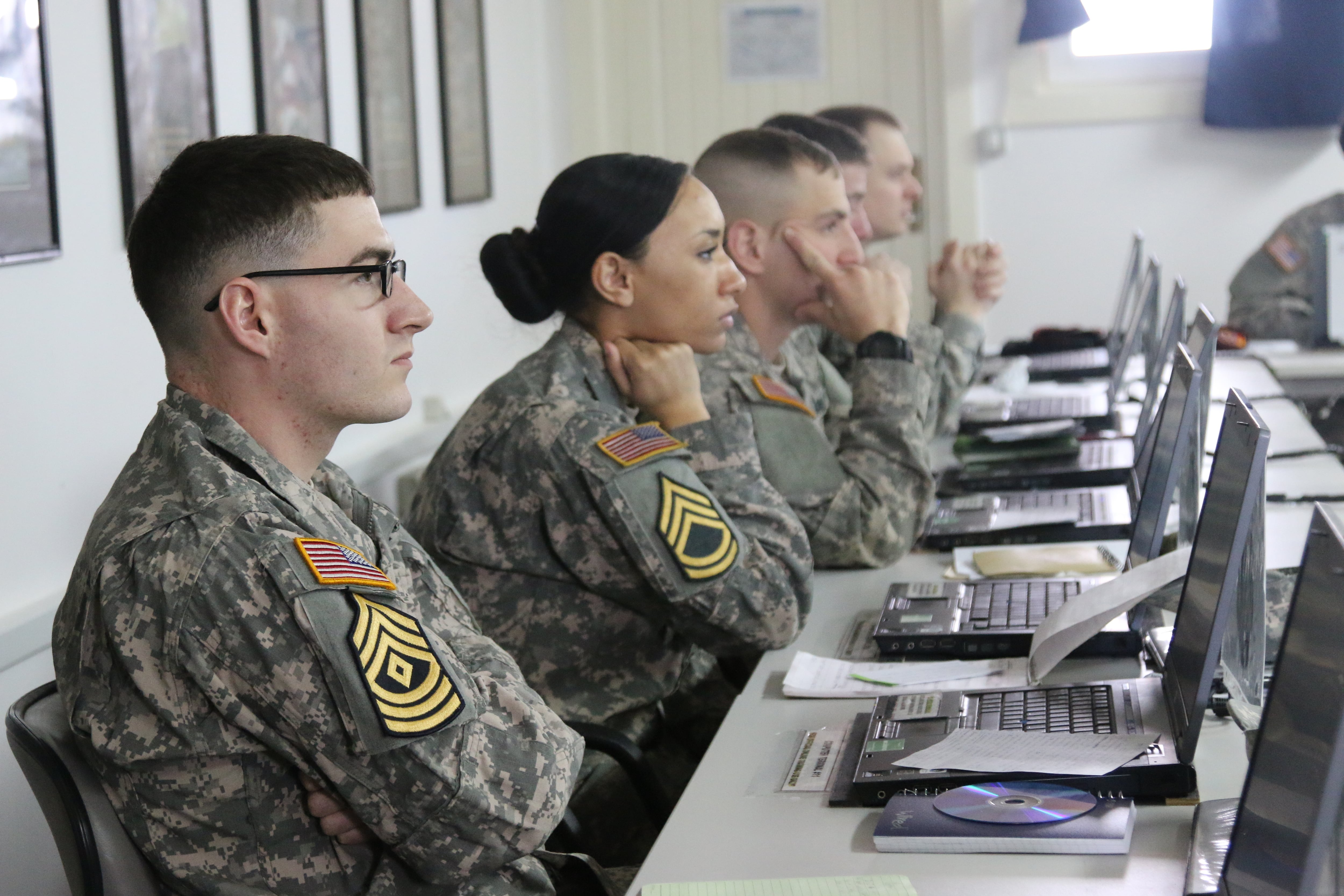As the Army prepares to require soldiers to go to school before they can be promoted, it is looking for ways to make sure troops are not disadvantaged by the system.
Under a new strategy called STEP — "select, train, educate and promote" — soldiers must have the right level of professional military education before they can be promoted to the next rank.
STEP goes into effect Jan. 1 for soldiers seeking promotion to sergeant and staff sergeant. It becomes mandatory for promotion to sergeant first class later in 2016 and for promotion to master sergeant in 2017.
"We're not going to disadvantage soldiers," said Command Sgt. Maj. David Davenport, the senior enlisted soldier for Training and Doctrine Command. "We ask soldiers to be ready to go [to school] when they're promotable."
Part of the challenge facing the Army when it comes to STEP is a backlog of nearly 14,000 soldiers who have not completed the schools they need to be considered for promotion.
To reduce that number, Army Human Resources Command is scheduling everyone in the backlog who needs the Advanced Leader Course and Senior Leader Course against a school date. The Basic Leader Course, formerly called the Warrior Leader Course, is a local school.
Soldiers who can't go to school because of a deployment or compassionate reasons can seek a deferment, but their commanders must now designate a later date for that soldier to go to school.
Another issue affects low-density or highly technical military occupational specialties, as highlighted in a letter to Army Times from a concerned NCO serving as a respiratory therapist.
Low-density MOSs, with a small population of soldiers, may only offer certain PME courses twice a year, for example. To make sure these soldiers' promotion chances are not hampered or delayed by a lack of available courses, TRADOC is exploring several options, Davenport said.
One option could be to increase the frequency of the course without increasing the total number of seats, he said.
So if a course is set for twice a year, with 50 seats in each class, maybe the Army could offer it four times a year with 25 seats in each class.
Some highly technical MOSs, such as those in the medical career field, have several requirements or gates soldiers must meet in order to be PME-certified, Davenport said.
"We're looking at how we gain efficiencies by consolidation and offering more frequent courses to meet the needs of their soldiers," he said.
Davenport emphasized that soldiers will not be jeopardized by the new STEP strategy.
"I assure you, if TRADOC cannot meet a requirement to get a soldier to school, a soldier will not be disadvantaged," he said. "We will work it case by case. My commitment, TRADOC's commitment, is to provide that education for soldiers."
Davenport stopped short of saying soldiers, in some cases, could be granted a PME waiver.
"You want to have standards, and you want to enforce standards, but you've also got to have compassion," he said. "Everything will be looked at fairly and objectively."
Under STEP, the Basic Leader Course is required for promotion to sergeant, the Advanced Leader Course for staff sergeant, and the Senior Leader Course for sergeant first class.
Davenport said he is always looking for soldier feedback. He even recently started a blog and has solicited feedback from soldiers about how to improve the much-maligned Structured Self-Development courses. Every soldier must complete the online SSD courses before attending a resident PME course.
Davenport said he responds to every soldier who contacts him through the blog.
"If they take the time to write to me, I will write them back. I have a very small window to make a difference in our Army. I'm trying to shape this education system for them," Davenport said about soldiers and their feedback. "They are the future."
Michelle Tan is the editor of Army Times and Air Force Times. She has covered the military for Military Times since 2005, and has embedded with U.S. troops in Iraq, Afghanistan, Kuwait, Haiti, Gabon and the Horn of Africa.





